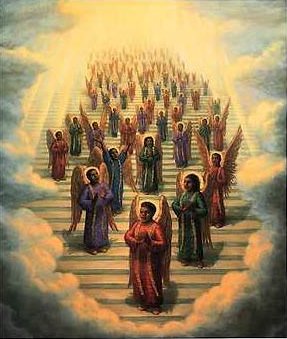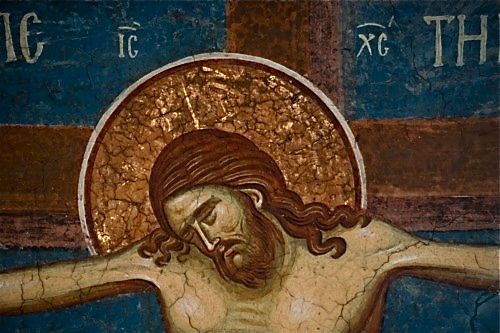
Shalom!
The Crucifixion of Jesus the Christ has presented a contradiction to humankind for over two thousand years. According to Christia
n Tradition, Jesus Christ, under the Authority of God the Father, chose to accept tortuous death by crucifixion to bring to fulfillment the prophecies
of the Hebrew Scriptures. Through this self-sacrificial, Divine Rite of atonement, Jesus provided a means for reconciling all people to God.
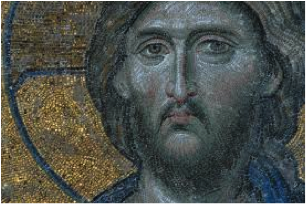 Jesus's sacrificial, bodily death on the Cross initiated a mystical, eternal offering that transmutes sin through God's healing Light and
Love. Through Jesus, all people for all time can receive Salvation, Peace, and Eternal Life. With Jesus, the ancient practice of offering
animal sacrifices to atone for sin was ended. A new era of continuous spiritual cleansing, living sacrifice, and holy redemption was
begun.
Jesus's sacrificial, bodily death on the Cross initiated a mystical, eternal offering that transmutes sin through God's healing Light and
Love. Through Jesus, all people for all time can receive Salvation, Peace, and Eternal Life. With Jesus, the ancient practice of offering
animal sacrifices to atone for sin was ended. A new era of continuous spiritual cleansing, living sacrifice, and holy redemption was
begun.
This great turning in world history originated on the day before Passover, the traditional day of remembrance of the terrible persecution of the Jewish people by Pharaoh. In the Rite of Passover, each family partakes in the consumption of a perfect lamb they have chosen to sacrifice in atonemen
t for their sins and as a thanksgiving offering to God.
A noted a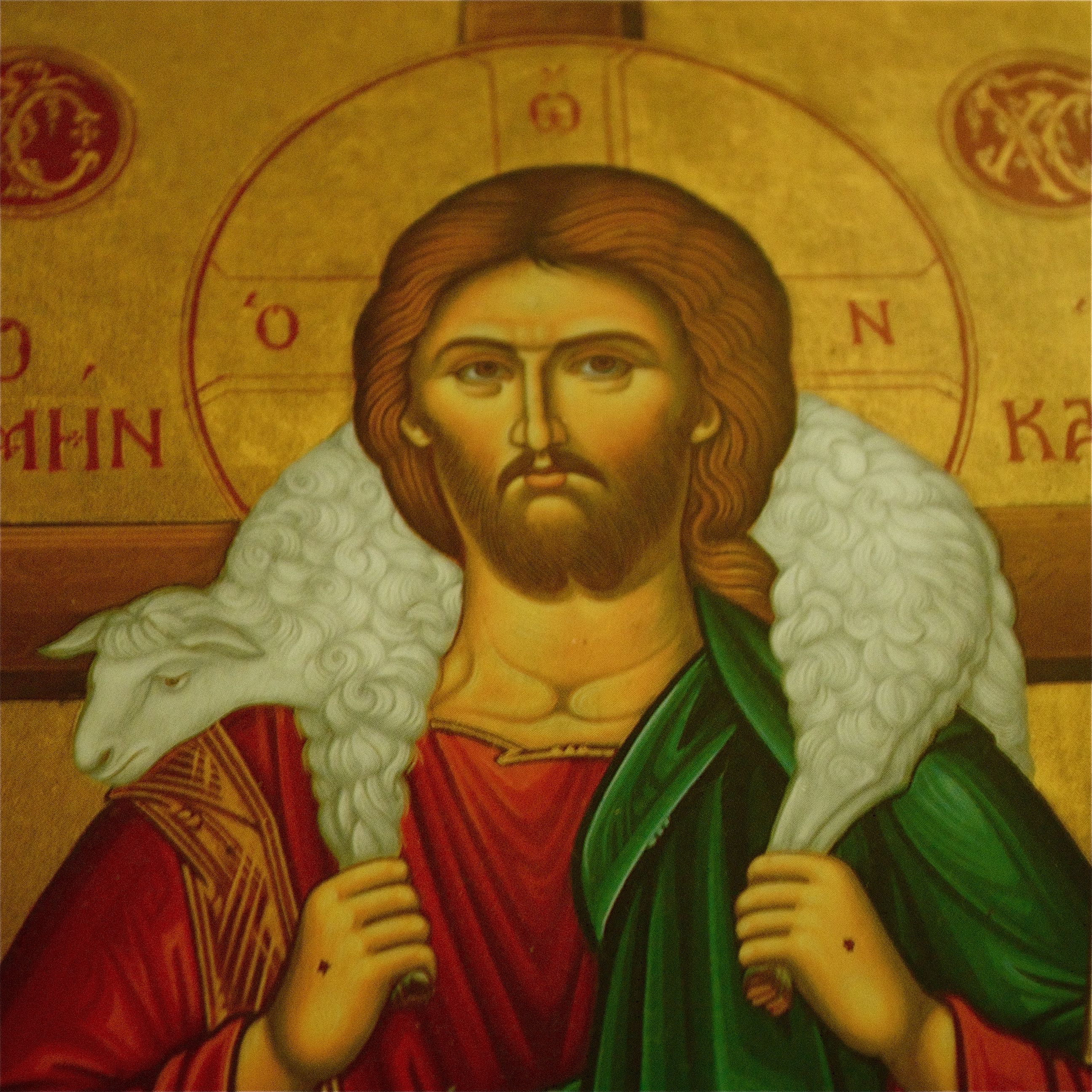 nd increasingly beloved prophet and healer, Jesus was proclaimed "Lamb of God" by His followers. With l
ove and understanding of His predestined sacred role, Jesus courageously chose to beco
me both the physical and mystical Sacrificial Lamb for all people, at this miraculous time of s
piritual awakening of humankind.
nd increasingly beloved prophet and healer, Jesus was proclaimed "Lamb of God" by His followers. With l
ove and understanding of His predestined sacred role, Jesus courageously chose to beco
me both the physical and mystical Sacrificial Lamb for all people, at this miraculous time of s
piritual awakening of humankind.
In Jerusalem, Jesus was initially an unknown outsider, a Nazarean from the Judean outskirts of Galilee. He preached a message of repentance, coupled with a call for people to choose of their own free w
ill to turn from selfish, sinful ways and earthly attachments –– which caused harm
to themselves and to others –– to more perfectly follow God's Way of Peace.
 Jesus changed the concept of the "other," “Goy,” or "Gentile,"–– the non-Israelites. T
o the Israelites, Gentiles were denigrated because they were believed to not follow the Law
of Moses and to practice idolatry. Although there was an acknowledgment of the “righteous” Gentiles, who strove to follow the Way of God, the Israelites generally separated
themselves from Gentiles.
Jesus changed the concept of the "other," “Goy,” or "Gentile,"–– the non-Israelites. T
o the Israelites, Gentiles were denigrated because they were believed to not follow the Law
of Moses and to practice idolatry. Although there was an acknowledgment of the “righteous” Gentiles, who strove to follow the Way of God, the Israelites generally separated
themselves from Gentiles.
Jesus penetrated the core principle of this belief system by identifying the “Gentile” within each individual and within all people, including His ow
n people, the Israelites. He redefined the concept of "other" in terms of the quality of the relationship of the
individual with God and emphasized the need to live a life of mutual, sacrificial service to one another. Jesus taught that all those who rebelliously chose
not to follow God's Way of Peace and who stubbornly failed to return to God to ask for His merciful forgiveness
were the "other."
 This new definition o
f "other" could include members of one's own family and culture who disobeyed God's Laws. He empowered people to
freely recognize the goodness they found in those who desired to follow the Way of God.
Spiritual brothers and sisters could be members of other families and cultures, Israelites and non-Israelites
alike, who more closely followed God's Way of Peace and Love.
This new definition o
f "other" could include members of one's own family and culture who disobeyed God's Laws. He empowered people to
freely recognize the goodness they found in those who desired to follow the Way of God.
Spiritual brothers and sisters could be members of other families and cultures, Israelites and non-Israelites
alike, who more closely followed God's Way of Peace and Love.
Jesus proclaimed a more refined, loving, and demanding interpretation of the Law of Moses. The Good Shepherd and Divine Protector, He called on His followers to abandon the values and the way of the world to lead sanctified lives, rejecting ways of life that turn one away from perfect union with God. His teachings liberated people to fulfill their potential as individuals made in the image and likeness of God.
Through Jesus, God's people were able to personally experience the Divinity of God in a human nature and aspire to God's call to holiness. His message broke through centuries of rigid cultural customs, unjust laws, and parochial social values, which interfered with the ability of individuals to achieve oneness with each other and with God. He chastised cultural practices that sanctioned unjust persecution and inhumane treatment as contrary to God's merciful Law of Love.
Thousands throughout Judea and Galilee welcomed Jesus and declared Him the Messiah. The Temple officials also sensed Jesus's supernatural nature. There was disagreement among them, as to whether Jesus’s powers were from God or from Beelzebub, a demon. Jesus was certainly not the Messiah they
were expecting.
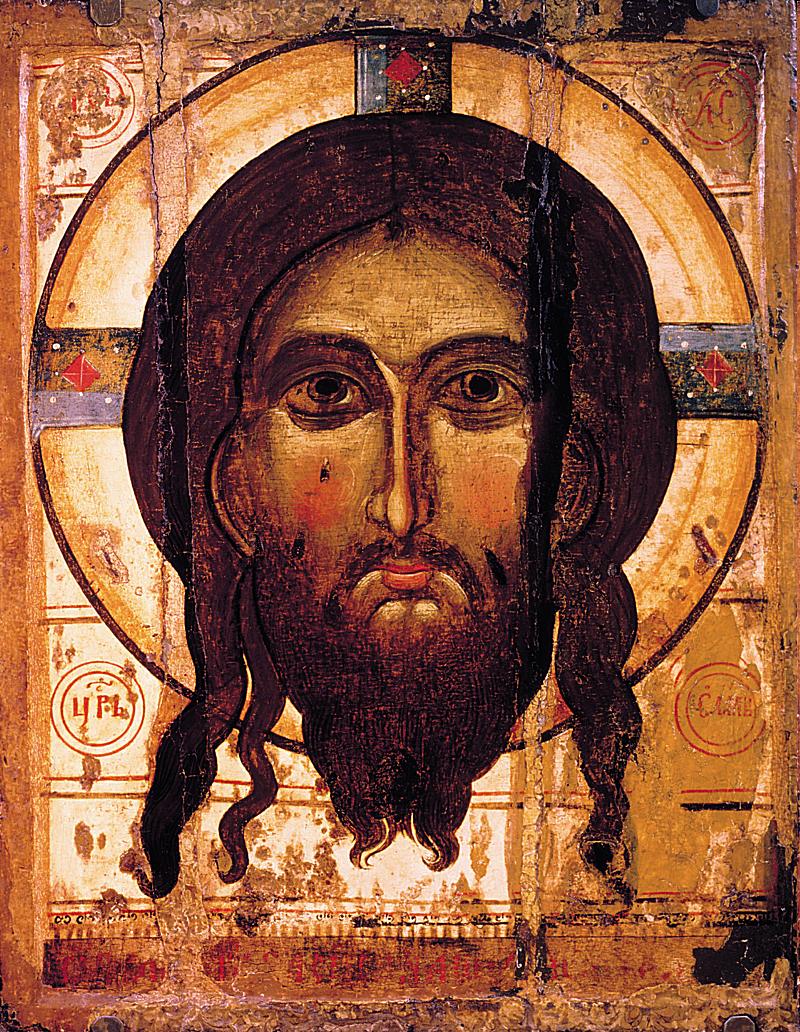
Even though the people of Jerusalem and the Temple leaders had been praying for centuries for the coming of the great liber
ator, the
Messiah, they were not expecting their liberation to be in the form of personal liberation and empowerment to choose to more perfectly transform themselves
as God’s representatives. Nor did they expect the Messiah to come in the form of a humble,
Divine God-man, who refined the Law of Moses and extended God's offer for redemption to
all humankind. Jesus’s words resonated beyond the walls of Jerusalem to welcome the world to learn the Way of God’s
Peace.
While some Temple officials were interested in Jesus’s teachings, others were overcome by feelings of hateful revulsion. They recogni
zed their lives would have to radically change if they accepted Jesus’s Divine Nature and Message.
To His adversaries, Jesus represented a mere man, who they thought they could dominate and subjugate to their terrors. Eventually, overwhelmed by
murderous rage, the chief priest and his officials chose not only wanted to remove Jesus from their
midst, but they also desired the complete destruction of His Name and Person––His Body and Soul––which they tried to achieve through the denigrating death sentence of crucifixion.
_-_WGA06802.jpg?updated=1632548423) However, they would discover that Jesus, their despised scapegoat, was their Divine Adversary and the world's salvation.
Jesus's mission would be completed in His victory not only over them, but also over the powers and
principalities of darkness for all time. They did not realize that through Jesus they would access
the source of the cure for their own limitations, in God's Divine Power.
However, they would discover that Jesus, their despised scapegoat, was their Divine Adversary and the world's salvation.
Jesus's mission would be completed in His victory not only over them, but also over the powers and
principalities of darkness for all time. They did not realize that through Jesus they would access
the source of the cure for their own limitations, in God's Divine Power.
This epic exchange between the powers of darkness and light is featured in the Rosary for World Peace's Fifth Sorrowful Mystery: The Crucifixion.
The Holy Spirit proclaims, The Kings of the Earth would not have believed, that the Adversary shoul
d enter in by the gates of Jerusalem, for the sins of her prophets and the iniquities of her priests that have shed the blood of the just in the midst of her (La
4:12-13). The Angel of the Lord announces, He s
hall die that you may take away the evil out of the midst of you (Dt 21:21).
With Pontius Pilate's consent, Jesus’s adversaries had gotten their wish. Jesus would act as their scapegoat and suffer the infliction of their deepest rage until He died, to satisfy their blood lust. Jesus's apostles lament, He was wounded for our iniquities, he was bruised for our sins: the chastisement of our peace was upon him: by his bruises we are healed (Isa 53:5). Jesus's friend, Pharisee Nicodemus, who recognized Jesus's Divine Nature attests, He will put away our iniquities: He will cast all of our sins into the bottom of the sea (Mich 7:19).
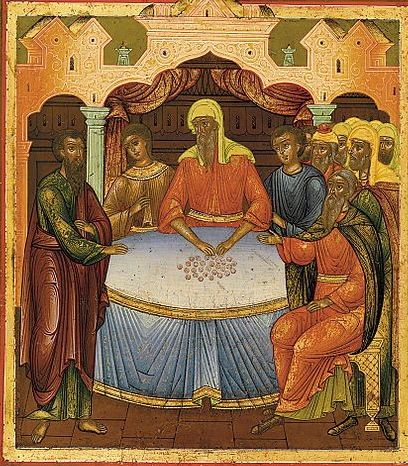 Mea
nwhile, one of Jesus's apostles, Judas Iscariot, who was paid to turn His master over to
the authorities for persecution, is overwhelmed with despair. Hearing o
f Jesus's death sentence, Judas is now devastated by his betrayal of Jesus and
fearful of the personal repercussions he would face for his actions.
Mea
nwhile, one of Jesus's apostles, Judas Iscariot, who was paid to turn His master over to
the authorities for persecution, is overwhelmed with despair. Hearing o
f Jesus's death sentence, Judas is now devastated by his betrayal of Jesus and
fearful of the personal repercussions he would face for his actions.
A consummate manipulator, Judas had used his relationship with Jesus to gain social status, as one of Jesus’s chosen apostles. When the Temp
le officials turned against Jesus, Judas came to view his relationship
with Jesus as a personal liability and sought to rid himself of Him. By betraying Jesus, he attempted to ingratiate himself with the powerful Temple officials, but they clearly saw the treachery of Judas's nature.
Instead of repenting, Judas remains self-absorbed and wildly rages against God, Why did thou bring me out of the womb? (Job 10:8). I have slain a man to the wounding of myself (Gen 4:23). I am like a night raven in the house (Job 10:7). Thou wilt frighten me with dreams and terrify me with visions, so that my soul rather chooseth hanging, and my bones death (Job 7:14-15).
Despite Judas's evil act of betraying His beloved Son Jesus, God The Father tries to encourage Judas to turn to Him for forgiveness, No, it shall not be so (Gen 4:15). My mercy I will not take away (Ps 88:34). I desire not the death of the wicked but that the wicked turn from his way and live (Ex 33:1). The Holy Spirit also gently tries to direct Judas to seek God, A sacrifice to God is an afflicted spirit, a contrite and humble heart, O God, Thou will not despise (Ps 50:19).
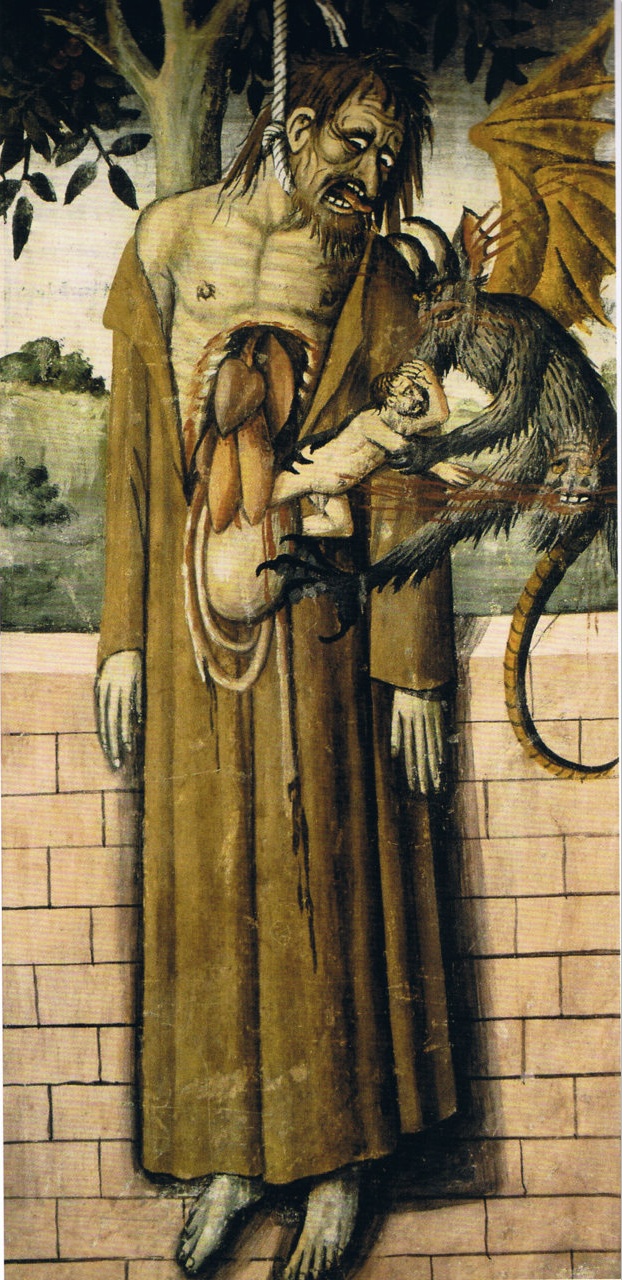 Judas will not listen and chooses to offend God once again, by defying God's authority over him and taking his own life, I have done w
i
th ho
pe. I shall live no longer (Job 7:16). Behold now I shall sleep in the dust: if Thou seek me in the morning, I shall not be ( Job 7:21).
Judas will not listen and chooses to offend God once again, by defying God's authority over him and taking his own life, I have done w
i
th ho
pe. I shall live no longer (Job 7:16). Behold now I shall sleep in the dust: if Thou seek me in the morning, I shall not be ( Job 7:21).
Satan and the Reb
ellious Angels gloat over their victory of Judas's body and soul, The wicked shall not be (Ps 36:10). The seed of the wicked shall perish (Ps 36:28). As a cloud is consumed and passeth away: so he that shall go down in to hell shall not come up. Neither shall his place know him anymore (Job 7:9-10).
In contrast, Jesus accepts God the Father's authority over Him and, though innocent, accepts His d
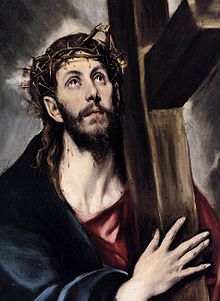 eath sentence at the hands of evil men, to fulfill His Divine Purpose. Uniting with God, Jesus says, With thee I was wounded in the house of them that loved me (Za 13:6). I will go to the altar of God (Ps 42:4). I will cleanse their blood which I had not cleansed: The Lord will dwell in Zion (Joel 3:21).
eath sentence at the hands of evil men, to fulfill His Divine Purpose. Uniting with God, Jesus says, With thee I was wounded in the house of them that loved me (Za 13:6). I will go to the altar of God (Ps 42:4). I will cleanse their blood which I had not cleansed: The Lord will dwell in Zion (Joel 3:21).
Jesus accepts the Cross as the sacred altar of His bodily sacrifice for the sins of others. Through His tortuous suffering, Jesus would transmute hatred into a cure for all humankind.
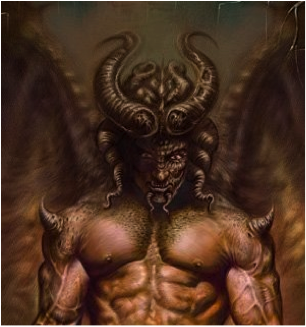 Knowing Jesus's Divine Powers, Satan is outraged by Jesus's
cooperation with God, and mocks Him, Thou that destroyest thy soul in thy fury, shall the
earth be fors
aken for thee? Shall rocks be removed out of their place? (Job 18:4).
Knowing Jesus's Divine Powers, Satan is outraged by Jesus's
cooperation with God, and mocks Him, Thou that destroyest thy soul in thy fury, shall the
earth be fors
aken for thee? Shall rocks be removed out of their place? (Job 18:4).
The Archangel Michael rebukes Satan, Why dost thou glory in malice, thou that
are mighty in iniquity? Thou hast loved all the words of ruin, O deceitful
tongue. Therefore will God destroy thee forever: he will pluck thee out, and remove
thee from thy dwelling place: and thy root out of the land of the living (Ps 51:3, 6-7).
God the Father also rebukes Satan and reaffirms Jesus's Divine Authority and Divine Purpose, Is there no strength in me to deliver? (Isa 50:2). That which was taken by the mighty shall be delivered (Isa 49: 24-25). There is no power on earth that can be compared to him who was made to fear no one (Job 41:24). He is cut off out of the land of the living: for the wickedness of my people I have struck him (Isa 53:8).
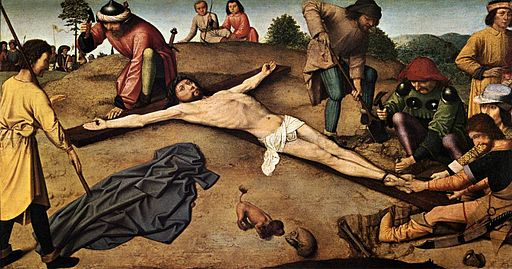
Jesus is then
crucified. Nailed onto a cross and raised between two thiev
es, the paradox between individual
good and evil and "the other" continues.
The
thief on His left mocks Jesus, Rise up, call upon thy
God, so he will think well of u
s
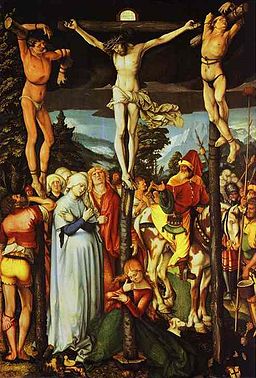 , that we may not perish (Job 1:6). The thief on His right, the "Good Thief," recognizes Jesus's Sanctity
and humbly requests, According to thy mercy remember thou me: for thy goodness sake, O Lord (Ps 24:7).
, that we may not perish (Job 1:6). The thief on His right, the "Good Thief," recognizes Jesus's Sanctity
and humbly requests, According to thy mercy remember thou me: for thy goodness sake, O Lord (Ps 24:7).
Although approachi
ng earthly death, Jesus responds with Divine
Authority, The
fear of the Lord is like a paradise of blessing (Ecclus 40:17). I am, I am He that blot out th
y iniquities for my own sake, I will not remember thy sins (Isa 43:25).
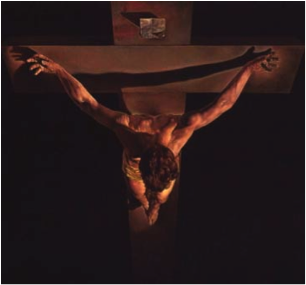 Below Himself, Jesus observes the spiritual darkness and lightness interplay. Jesus takes pity on His enemies, who sat and watched him (Mt 27:36).
Below Himself, Jesus observes the spiritual darkness and lightness interplay. Jesus takes pity on His enemies, who sat and watched him (Mt 27:36).
He prays
Father, forgive them for they kno
w not what they do (Lk 23:34). His enemies deride Him even more. A Temple scribe sneers, Who ever perished being innocent? (Job 4:7). A chief priest rebukes Jesus, He hoped in the Lord: Let him deliver him (Ps 21:9). The Rebellious Angels taunt, Where is thy God? (Ps 41:4).
One senses
in their challenge a germ of doubt. Like Satan, having witnessed Jesus's Divine Power, they are confounded why Jesus willingly cooperated with their plan to torture Him an
d nail Him to a cross. They
did not understand that
their cross had been transformed
into the spiritual altar
of Jesus's Divine Sacrifice.
Through their
evil actions, Jesus the
Christ had become God's
mystical, sacrificial
Lamb.
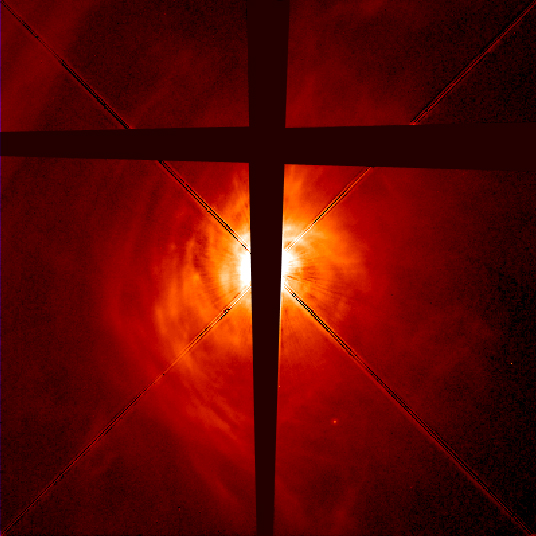 The Cross would become a universal sign of Jesus's Eternal Intercession for the sins of all humankind, which had merited suffering and death from the beginning of the fall of Adam to the last return of Christ. Through His suffering on the Cross, Jesus would transmute their hatred for Him into a cure for all humankind, as a Divine Testament of th
e God's Power of good over
evil. Through the Cross,
Satan's power to cause
the death of humankind
would be extinguished.
In their most heinous act
of evil, they would encounter
God.
The Cross would become a universal sign of Jesus's Eternal Intercession for the sins of all humankind, which had merited suffering and death from the beginning of the fall of Adam to the last return of Christ. Through His suffering on the Cross, Jesus would transmute their hatred for Him into a cure for all humankind, as a Divine Testament of th
e God's Power of good over
evil. Through the Cross,
Satan's power to cause
the death of humankind
would be extinguished.
In their most heinous act
of evil, they would encounter
God.
Sorrowful and suffering the effects of the tortuous abuse, Jesus is overcome with grief. His human nature pleads to God, O God, my God
: Wh
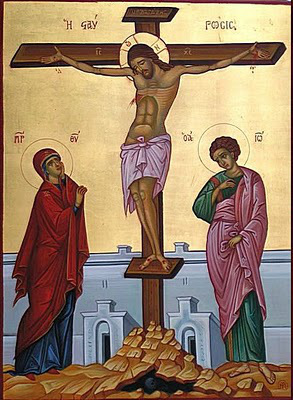 y h
ast thou forsaken me? (Ps 21:2; Mk 15:34). Jesus then turns to gaze down at His devoted mother, Mary, and the disciple
who believed in
His
Love, who stan
d with
Him
under
the
shelter
of
His
Cross.
y h
ast thou forsaken me? (Ps 21:2; Mk 15:34). Jesus then turns to gaze down at His devoted mother, Mary, and the disciple
who believed in
His
Love, who stan
d with
Him
under
the
shelter
of
His
Cross.
Jesus entrusts them to each other as mother and son, forming a new, spiritual family rooted in Him, Woman behold they son, and, Behold thy mother (Jn 19: 26-27).
Lastly after Jesus
says, It is finished (Jn 19:30), He
commends His spirit
to God The Father,
Into Thy hands I commend my spirit (Ps
30:6; Lk 23:46).
His enemies claim victory and gloat, Well done, well done, our eyes have seen it. (Ps 34:21). We have swallowed Him up (Ps 34:25). Alive like Hell, whole as one that goeth down into the Pit. (Prov 1:12). Distraught, the good Pharisee Nicodemus cries, Ye men of blood depart from me (Ps 138:19). The Just that is dead condementh the wicked that are living (Wis 4:16).
To prove that Jesus had died, a Roman Centurion, a representative of the "other" in all aspects, because he is part of the despised foreign Roman conquest forces, pierces Jesus's side. Jesus's Divine Heart is revealed and out gushes Blood and Water.
 God’s Power suddenly manifests: the sun darkens in mid-day, the earth quakes, and the heavy veil in the Temple of Jerusalem is violently tears apart, exposing the secret, inner sanctum. Jesus's enemies flee in fear. The Centurion proclaims, Indeed this man was the Son of God
(Mk 15:39). During
these holy hours,
through Jesus,
the means of Holy
Redemption is made
apparent: the sinner
and the stranger
are enlightened
and redeemed.
God’s Power suddenly manifests: the sun darkens in mid-day, the earth quakes, and the heavy veil in the Temple of Jerusalem is violently tears apart, exposing the secret, inner sanctum. Jesus's enemies flee in fear. The Centurion proclaims, Indeed this man was the Son of God
(Mk 15:39). During
these holy hours,
through Jesus,
the means of Holy
Redemption is made
apparent: the sinner
and the stranger
are enlightened
and redeemed.
The Archangel Michael claims God's victory, Thou struckest the head of the house of the w
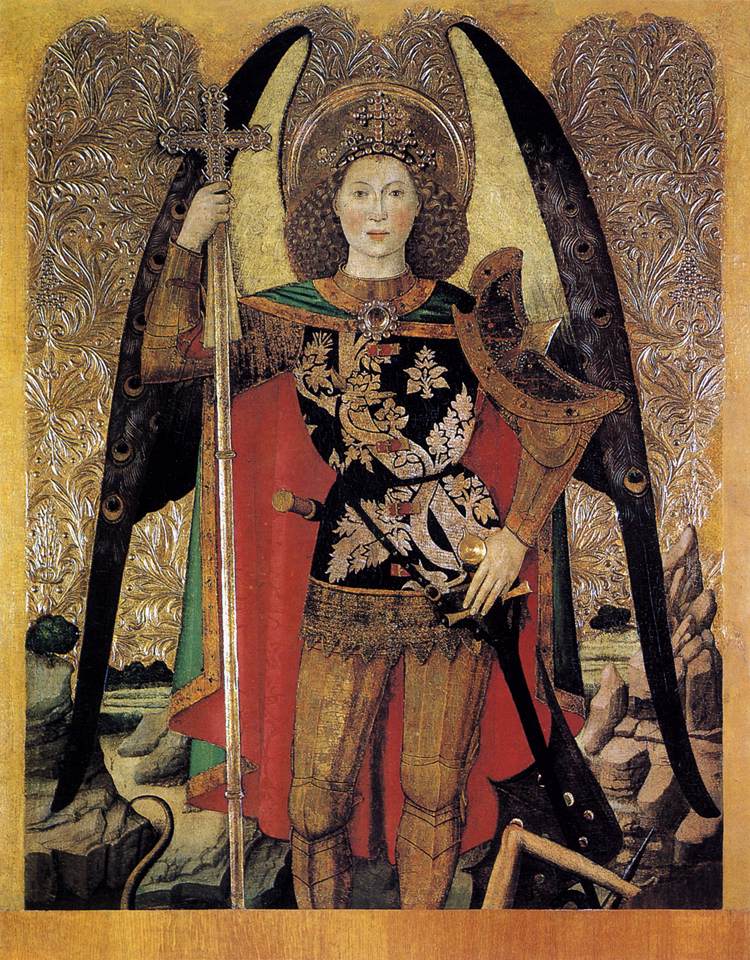 icked: thou
has laid bare his foundation (Hab
3:13).
God
The
Father
mightily
proclaims,
I am the Lord that save Thee, Thy Redeemer (Isa
49:26) All the work of the tabernacle was finished (Ex
39:31).
It hath been done that the rite of the sacrifice might be accomplished (Lev
8:34).
He shall divide the spoils of the strong, because he delivered his soul from death, and was reputed with the wicked: he that borne the sins of many, had prayed for the transgressors (Isa
53:12).
The
Angels
of
God
sing, Bless be the Name of His Majesty forever (Ps
71:19).
icked: thou
has laid bare his foundation (Hab
3:13).
God
The
Father
mightily
proclaims,
I am the Lord that save Thee, Thy Redeemer (Isa
49:26) All the work of the tabernacle was finished (Ex
39:31).
It hath been done that the rite of the sacrifice might be accomplished (Lev
8:34).
He shall divide the spoils of the strong, because he delivered his soul from death, and was reputed with the wicked: he that borne the sins of many, had prayed for the transgressors (Isa
53:12).
The
Angels
of
God
sing, Bless be the Name of His Majesty forever (Ps
71:19).
With Jesus's death on the Cross, the Scriptures are fulfilled and the eternal contradiction of the Cross established. The majesty of God is revealed in His Unity with the Person of a mere man, His Divine Son, Jesus the Christ. Through the Cross, Jesus died to sin and eternally united with God the Father. Jesus lost nothing and in Him we gained everything.
 Over
two
thousand
y
ears
have
passed
and
still
we
are
confronted
with
the
contradiction
of
the
Cross.
In
this
ancient
mirror,
we
can
see
ourselves
in
the
various
postures
of
"the
other."
Who
woul
d
we
be,
at
this
most
Over
two
thousand
y
ears
have
passed
and
still
we
are
confronted
with
the
contradiction
of
the
Cross.
In
this
ancient
mirror,
we
can
see
ourselves
in
the
various
postures
of
"the
other."
Who
woul
d
we
be,
at
this
most
terrible
of
moments?
Are
we
like
Judas,
selfishly
overwhelmed
by
the
effects
of
our
sins
and
refusing
the
healing
Mercy
of
God?
Do
we
defensively
isolate
ourselves
in
our
agonized
torment,
believing
we
can
never
be
restored
to
oneness
with
God?
Or,
are
we
like
the
corrupt
Pharisees
and
timid
apostles,
who
flee
from
God,
when
it
begins
to
cost
us,
when
we
encounter
terrible
sufferings
for
following
God’s
Way,
when
we
have
to
change
our
relationships,
entrenched
behaviors,
and
our
very
souls
to
move
toward
closer
unity
with
God?
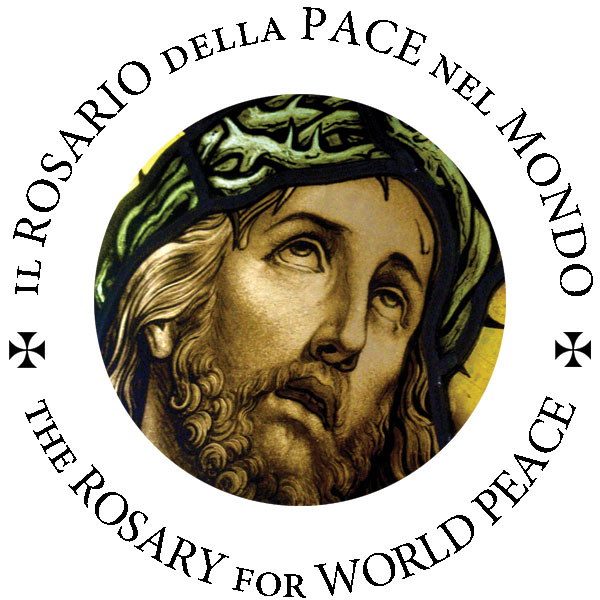
Are
we
like
the
mocking
thief
and
those
of
self-defined
social
status
who
deride
the
idea
of
God,
arrogantly
insisting
that
God
prove
His
existence
to
us?
Do
we
justify
our
destructive,
selfish
actions
by
the
human-made
philosophies
and
ethics
of
our
time,
choosing
to
rationalize
our
behavior
and
remain
distant
from
God,
even
unto
death?
Are
we
the
unholy,
contemporary,
Gentiles,
who
put
our
pleasures
and
pursuits
before
our
responsibilities,
subordinating
God’s
Will
for
us
to
our
own
willfulness?
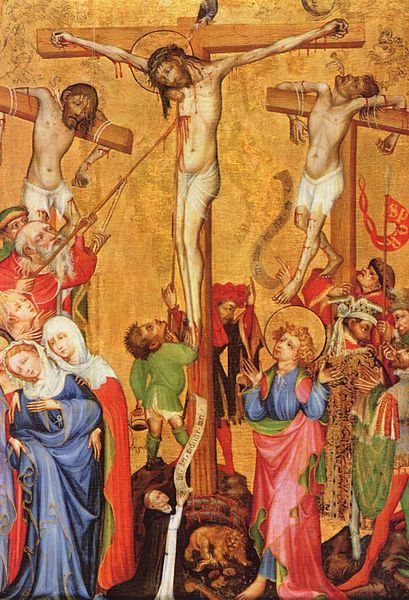 Or,
are
we
like
the
fair
and
true
Pharisee
Nicodemus,
who
had
the
courage
to
separate
from
his
peers,
putti
ng
his
privileges
at
risk
,
to
attest
to
the
Presence
of
God
in
Jesus?
Do
we
have
the
humility
of
the
Good
Thief,
who
merely
asks
to
be
remembered
by
God,
or,
are
we
like
Jesus's
steadfast
apostle
and
mother,
Mary,
who
lovingly
stood
under
the
shelter
of
the
Cross
with
Jesus
until
the
end,
no
matter
the
grief,
hu
miliation,
and
personal
consequences,
and
accept
Jesus's
direction
to
form
a
new
family
rooted
in
Jesus’s
Love
?
Do
we
have
the
h
onesty
of
the
Roman
Centurion,
who
had
the
courage
to
recognize
the
truth
of
Jesus's
Divine
Nature,
even
though
Jesus
was
of
another
culture
and
foreign
to
his
own
way
of
life?
Or,
are
we
like
the
fair
and
true
Pharisee
Nicodemus,
who
had
the
courage
to
separate
from
his
peers,
putti
ng
his
privileges
at
risk
,
to
attest
to
the
Presence
of
God
in
Jesus?
Do
we
have
the
humility
of
the
Good
Thief,
who
merely
asks
to
be
remembered
by
God,
or,
are
we
like
Jesus's
steadfast
apostle
and
mother,
Mary,
who
lovingly
stood
under
the
shelter
of
the
Cross
with
Jesus
until
the
end,
no
matter
the
grief,
hu
miliation,
and
personal
consequences,
and
accept
Jesus's
direction
to
form
a
new
family
rooted
in
Jesus’s
Love
?
Do
we
have
the
h
onesty
of
the
Roman
Centurion,
who
had
the
courage
to
recognize
the
truth
of
Jesus's
Divine
Nature,
even
though
Jesus
was
of
another
culture
and
foreign
to
his
own
way
of
life?
All
of
th
e
people
who
participated
in
the
crucifixion
of
Jesus
were
on
their
personal
soul
journeys.
May
we
be
given
the
grace
to
recognize
and
conquer
the
"other"
within
our
own
souls,
ridding
our
lives
of
anything
opposing
God's
Will
for
us.
By
choosing
to
accept
Jesus's
grace
of
liberati
on
and
joyfully
discovering
our
true
selves,
may
we
gain
in
spiritual
strength
and
offer
our
lives
in
the
service
to
God,
whatever
the
suffering
of
our
crosses
presents.
 As
we
travel
through
this
world
at
this
time
and
space,
may
we,
too,
be
given
the
spiritual
vision
to
recognize
God
in
those
different
from
ours
e
l
ves
and
rejoice
when
we
meet
those
who
have
also
chosen
to
pick-up
their
crosses
and
struggle
on
to
bring
God's
healing
Light
and
Love
to
oth
ers.
Together,
we
can
choose
to
lovingly,
patiently,
and
faithfully
follow
the
W
ay
of
the
Cross,
God's
Way
of
sacrificial
Peace,
bringing
peace
to
this
world,
until
we
are
joined
in
unity
with
God
through
Jesus
and
with
each
other
for
all
eternity.
As
we
travel
through
this
world
at
this
time
and
space,
may
we,
too,
be
given
the
spiritual
vision
to
recognize
God
in
those
different
from
ours
e
l
ves
and
rejoice
when
we
meet
those
who
have
also
chosen
to
pick-up
their
crosses
and
struggle
on
to
bring
God's
healing
Light
and
Love
to
oth
ers.
Together,
we
can
choose
to
lovingly,
patiently,
and
faithfully
follow
the
W
ay
of
the
Cross,
God's
Way
of
sacrificial
Peace,
bringing
peace
to
this
world,
until
we
are
joined
in
unity
with
God
through
Jesus
and
with
each
other
for
all
eternity.
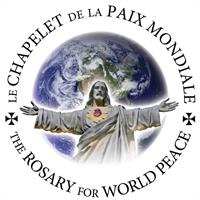
Be
part
of
the
PEACE!
The Rosary for World Peace
*All
Scripture
verses
are
from
The Holy Bible:
Douay
Rheims
version.
www.drbo.org
©
2016
Exposition
Management
International
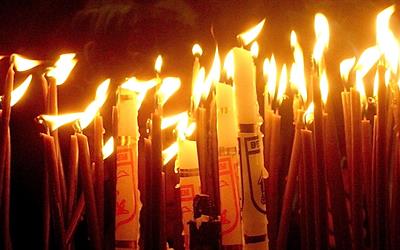
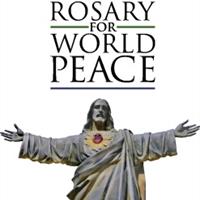 with you, that all things must need be fulfilled, which are written in the Law of Moses, and in the prophets, and in the Psalms concerning me (Lk 24:44).
St. Luke then states, Then he opened their understanding, that they might understand the Scriptures (Lk 24:45).
with you, that all things must need be fulfilled, which are written in the Law of Moses, and in the prophets, and in the Psalms concerning me (Lk 24:44).
St. Luke then states, Then he opened their understanding, that they might understand the Scriptures (Lk 24:45).
 contemporary themes conveying the essence of the Christian message of the Way of Peace. As each concert is created, it can
be performed in venues throughout the world. Broadcasts, recordings, and DVDs could reach millions more.
contemporary themes conveying the essence of the Christian message of the Way of Peace. As each concert is created, it can
be performed in venues throughout the world. Broadcasts, recordings, and DVDs could reach millions more.
 imaging insights, language review, and support. People from over 140 countries have visited the website.
imaging insights, language review, and support. People from over 140 countries have visited the website. 
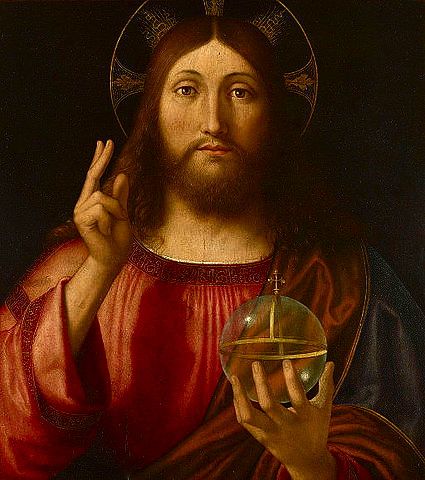
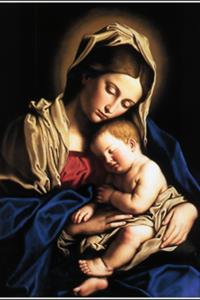 twelve-years of age, and discovered teaching in the Temple of Jerusalem.
twelve-years of age, and discovered teaching in the Temple of Jerusalem.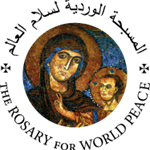

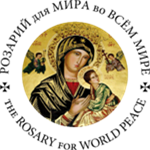





 This new definition o
This new definition o
_-_WGA06802.jpg?updated=1632548423) However, they would discover that Jesus, their despised scapegoat, was their Divine Adversary and the world's salvation.
However, they would discover that Jesus, their despised scapegoat, was their Divine Adversary and the world's salvation.

 Knowing Jesus's Divine Powers, Satan is outraged by Jesus's
Knowing Jesus's Divine Powers, Satan is outraged by Jesus's 

 Below Himself, Jesus observes the spiritual darkness and lightness interplay. Jesus takes pity on His enemies, who sat and watched him (Mt 27:36).
Below Himself, Jesus observes the spiritual darkness and lightness interplay. Jesus takes pity on His enemies, who sat and watched him (Mt 27:36). The Cross would become a universal sign of Jesus's Eternal Intercession for the sins of all humankind, which had merited suffering and death from the beginning of the fall of Adam to the last return of Christ. Through His suffering on the Cross, Jesus would transmute their hatred for Him into a cure for all humankind, as a Divine Testament of th
The Cross would become a universal sign of Jesus's Eternal Intercession for the sins of all humankind, which had merited suffering and death from the beginning of the fall of Adam to the last return of Christ. Through His suffering on the Cross, Jesus would transmute their hatred for Him into a cure for all humankind, as a Divine Testament of th God’s Power suddenly manifests: the sun darkens in mid-day, the earth quakes, and the heavy veil in the Temple of Jerusalem is violently tears apart, exposing the secret, inner sanctum. Jesus's enemies flee in fear. The Centurion proclaims, Indeed this man was the Son of God
God’s Power suddenly manifests: the sun darkens in mid-day, the earth quakes, and the heavy veil in the Temple of Jerusalem is violently tears apart, exposing the secret, inner sanctum. Jesus's enemies flee in fear. The Centurion proclaims, Indeed this man was the Son of God 




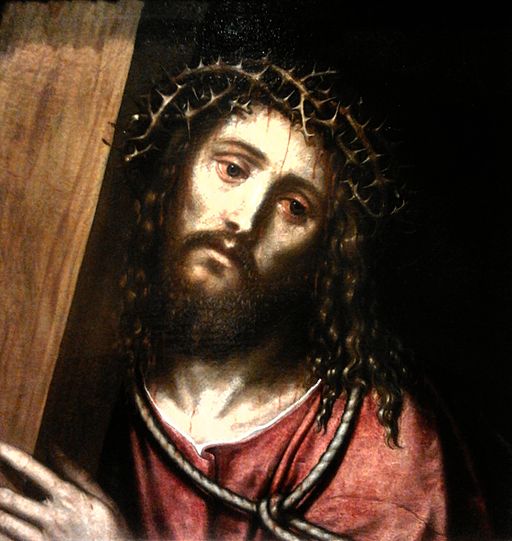
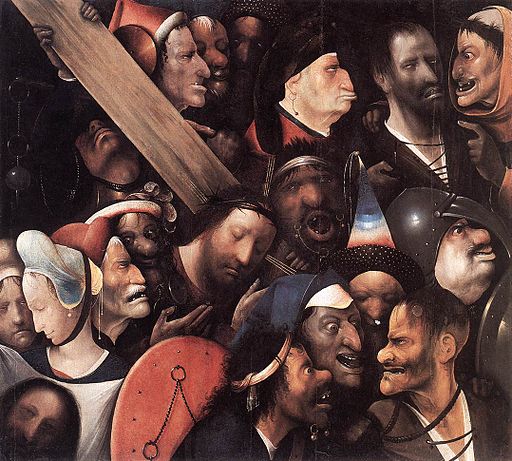
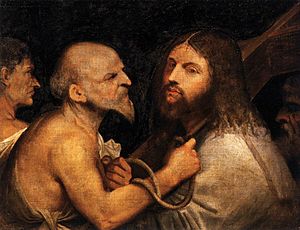 Though it is an agony of body and soul, Jesus has accepted God's Will for Him, God hath shut me up and hath delivered me into the hands of the wicked (Job 16:12). He hath set me up to be his mark (Job 16:13). He hath compassed me round about with his lances, he hath wounded my loins (Job 16:14). These things I have suffered without the iniquity of my hand, when I offered pure prayers to God (Job 16:18). Jesus knows that God is in charge of the proceedings and is aware of the shift in power that is about to take place, They surrounded me like bees, and burned like fire among thorns: In the name of The Lord I was revenged on them (Ps 117:12).
Though it is an agony of body and soul, Jesus has accepted God's Will for Him, God hath shut me up and hath delivered me into the hands of the wicked (Job 16:12). He hath set me up to be his mark (Job 16:13). He hath compassed me round about with his lances, he hath wounded my loins (Job 16:14). These things I have suffered without the iniquity of my hand, when I offered pure prayers to God (Job 16:18). Jesus knows that God is in charge of the proceedings and is aware of the shift in power that is about to take place, They surrounded me like bees, and burned like fire among thorns: In the name of The Lord I was revenged on them (Ps 117:12).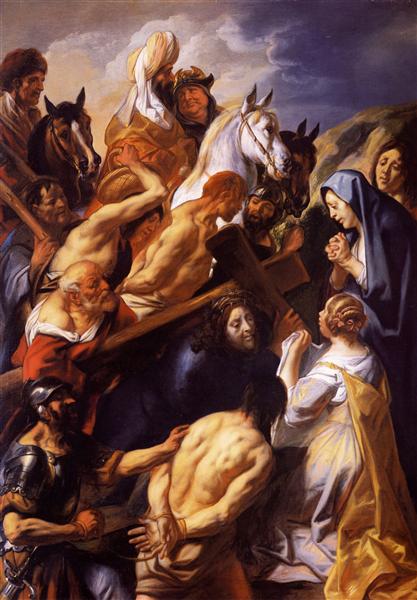 Mary, Jesus's mother, encourages Jesus, Direct thy way and trust in him (Ecclus 2:6). Take all that shall be brought upon thee (Ecclus 2:4). In thy sorrow endure (Ecclus 2:4). In thy humiliation keep patience (Ecclus 2:4). The Angels of God sing with assurance, He that hath been humbled, shall be in glory (Job 22:29).
Mary, Jesus's mother, encourages Jesus, Direct thy way and trust in him (Ecclus 2:6). Take all that shall be brought upon thee (Ecclus 2:4). In thy sorrow endure (Ecclus 2:4). In thy humiliation keep patience (Ecclus 2:4). The Angels of God sing with assurance, He that hath been humbled, shall be in glory (Job 22:29).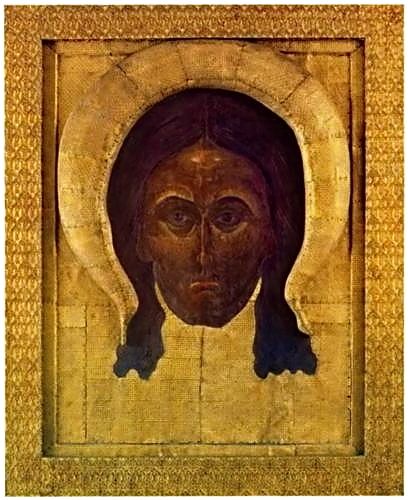 Thou art my protector, my refuge: my God, in him will I trust (Ps 90:2). Open ye to me the gates of justice: I will go in to them, and give praise to the Lord (Ps 117:19). God the Father proclaims, I am with him in tribulation, I will deliver him, and I will glorify him (Ps 90:15). Thy redeemer, the holy one of Israel, shall be called the God of all the Earth (Isa 54:5).
Thou art my protector, my refuge: my God, in him will I trust (Ps 90:2). Open ye to me the gates of justice: I will go in to them, and give praise to the Lord (Ps 117:19). God the Father proclaims, I am with him in tribulation, I will deliver him, and I will glorify him (Ps 90:15). Thy redeemer, the holy one of Israel, shall be called the God of all the Earth (Isa 54:5). 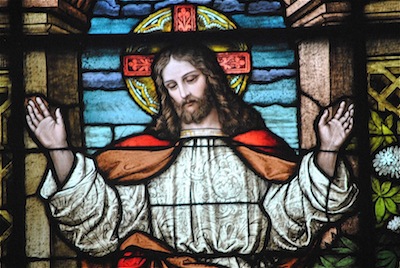

 The Four Rosary Mysteries:
The Four Rosary Mysteries: 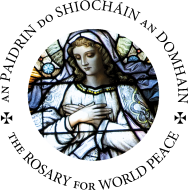
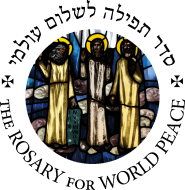

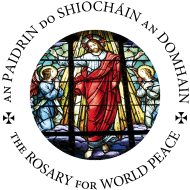
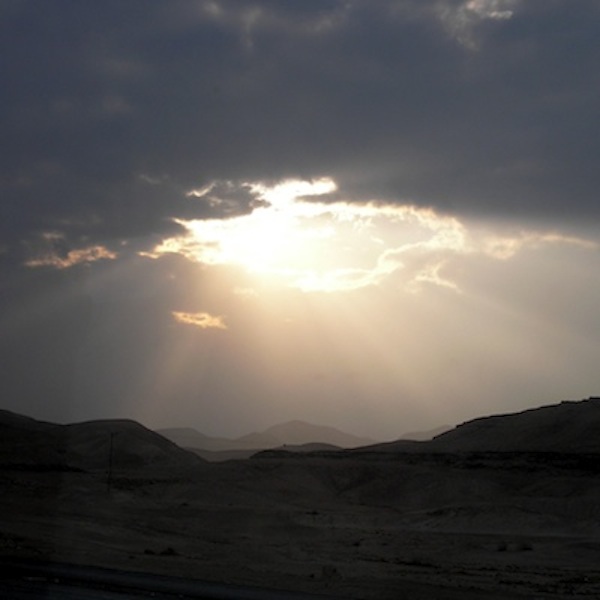
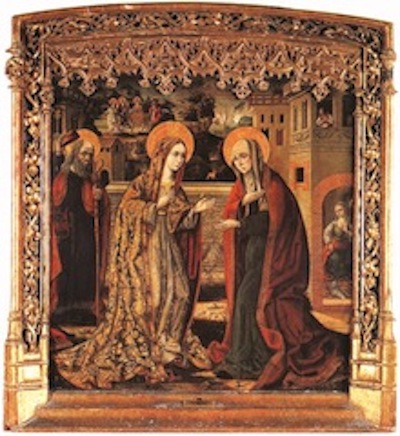 : The Visitation.
: The Visitation. ivine Presence of Jesus in the world.
ivine Presence of Jesus in the world. ntemplation is the experience of barrenness. While Elizabeth endured a physical barrenness for decades, we later learn there was a purpose in the timing of the births of her son, John, and Mary's son, Jesus. As an adult, John will become known as the prophet John the Baptist, who will publicly proclaim Jesus as the Lamb of God. It is John who initiates the beginning of Jesus's pubic ministry, through the rite of baptism. What was experienced as barrenness was transformed into God's designed plan for fruitfulness.
ntemplation is the experience of barrenness. While Elizabeth endured a physical barrenness for decades, we later learn there was a purpose in the timing of the births of her son, John, and Mary's son, Jesus. As an adult, John will become known as the prophet John the Baptist, who will publicly proclaim Jesus as the Lamb of God. It is John who initiates the beginning of Jesus's pubic ministry, through the rite of baptism. What was experienced as barrenness was transformed into God's designed plan for fruitfulness.
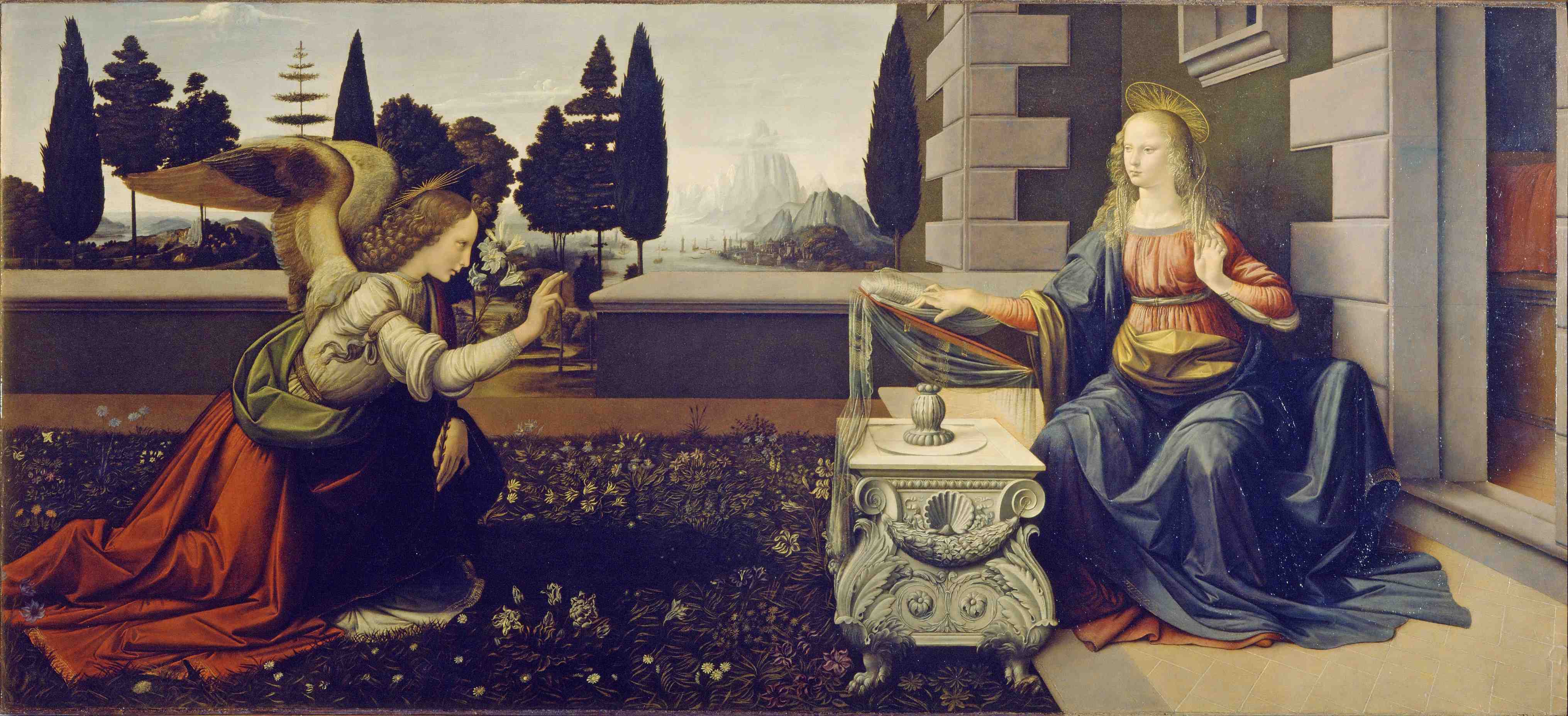
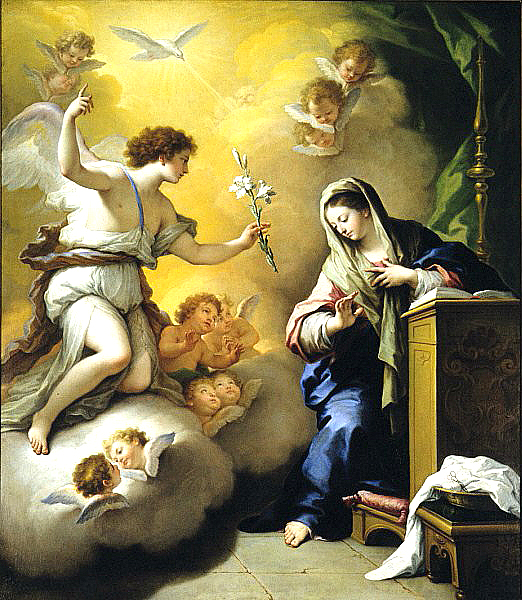

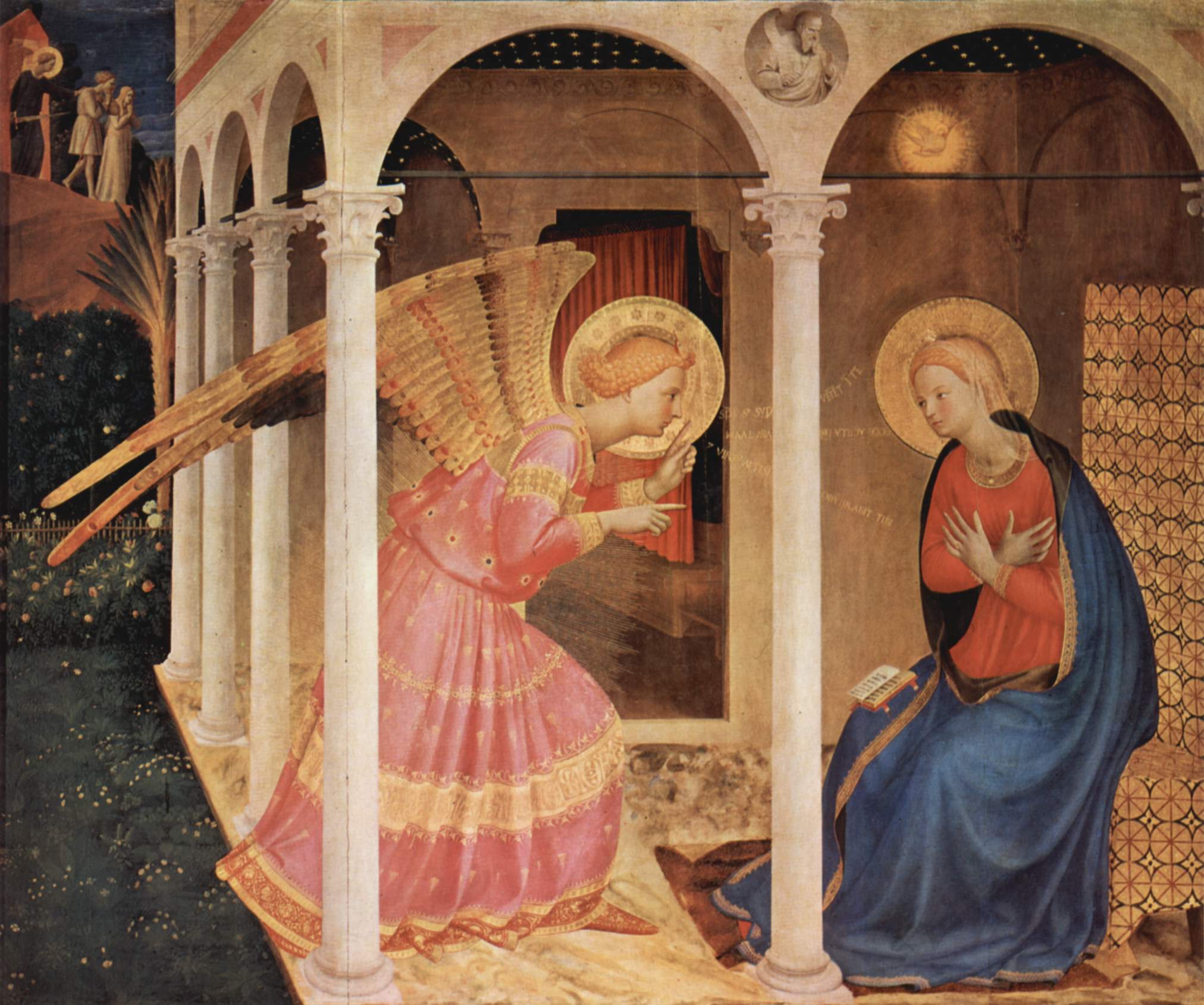
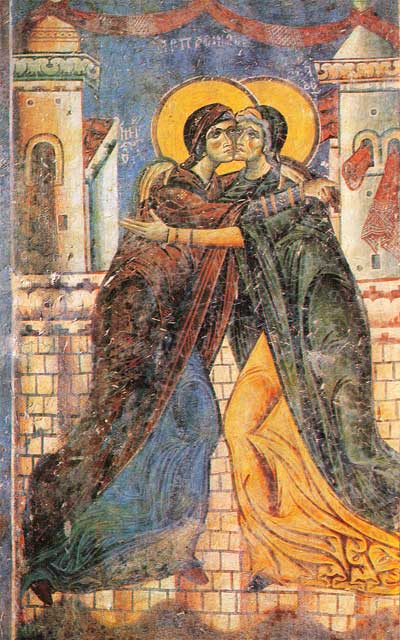 The different language sounds are united too in the ancient words of the Hail Mary prayer. Just as the
Archangel Gabriel announced to Mary that God had chosen her to conceive
His Son Jesus, it is with the same words that the Presence
of God is again proclaimed: Hail Mary, full of grace, the Lord is with thee. Blessed art thou among women (Lk 1:28). The prayer continues on to echo Elizabeth's words across the millennium, Blessed is the fruit of thy womb, Jesus (Lk 1:42).
The different language sounds are united too in the ancient words of the Hail Mary prayer. Just as the
Archangel Gabriel announced to Mary that God had chosen her to conceive
His Son Jesus, it is with the same words that the Presence
of God is again proclaimed: Hail Mary, full of grace, the Lord is with thee. Blessed art thou among women (Lk 1:28). The prayer continues on to echo Elizabeth's words across the millennium, Blessed is the fruit of thy womb, Jesus (Lk 1:42). 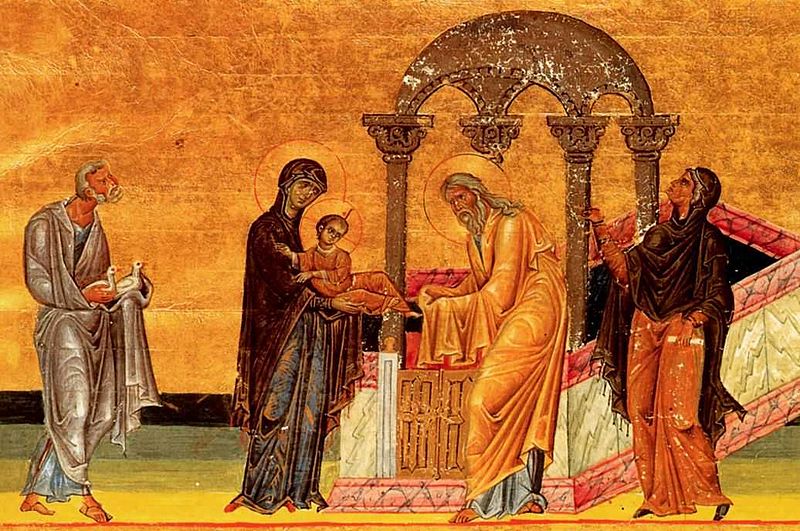

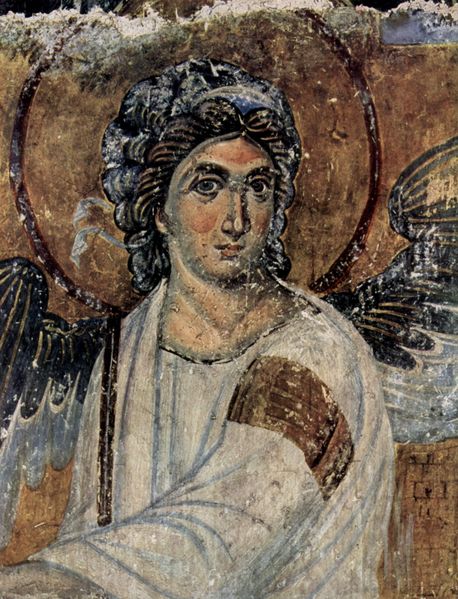
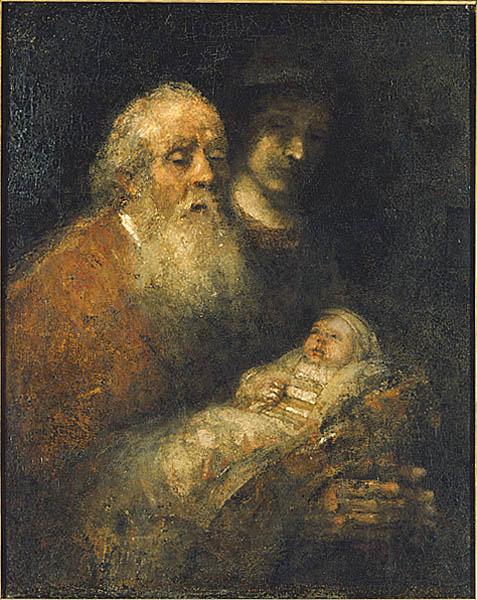 In the Temple was a just and devout man, named Simeon, who had been waiting for years to see the promised Messiah: He had received an answer from the Holy Ghost, that he should not see death before he had seen the Christ of the Lord (Lk 2:23). Prompted by the Holy Spirit, Simeon came into the Temple and saw Joseph, Mary, and their child, Jesus. Immediately, Simeon spiritually sees God's Presence in Jesus: He also took him into his arms and blessed God and said, Now thou doest dismiss thy servant, O Lord, according to thy word in peace; because my eyes have seen thy salvation, which thou hast prepared before the face of all peoples: a light to the revelation of the Gentiles and the glory of thy people Israel (Lk 2:27-31).
In the Temple was a just and devout man, named Simeon, who had been waiting for years to see the promised Messiah: He had received an answer from the Holy Ghost, that he should not see death before he had seen the Christ of the Lord (Lk 2:23). Prompted by the Holy Spirit, Simeon came into the Temple and saw Joseph, Mary, and their child, Jesus. Immediately, Simeon spiritually sees God's Presence in Jesus: He also took him into his arms and blessed God and said, Now thou doest dismiss thy servant, O Lord, according to thy word in peace; because my eyes have seen thy salvation, which thou hast prepared before the face of all peoples: a light to the revelation of the Gentiles and the glory of thy people Israel (Lk 2:27-31).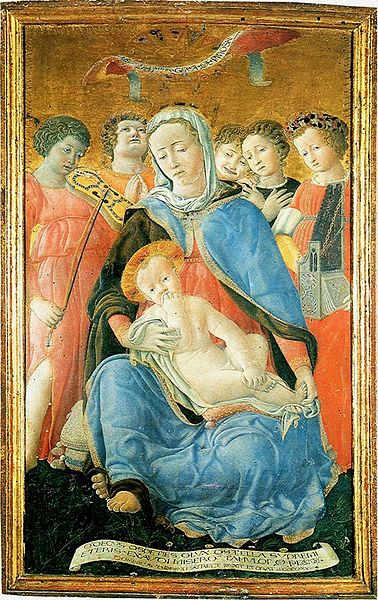

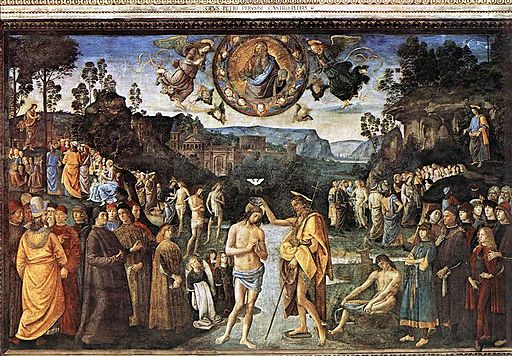
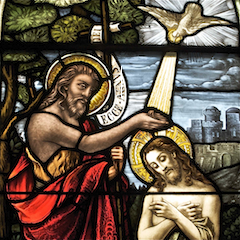
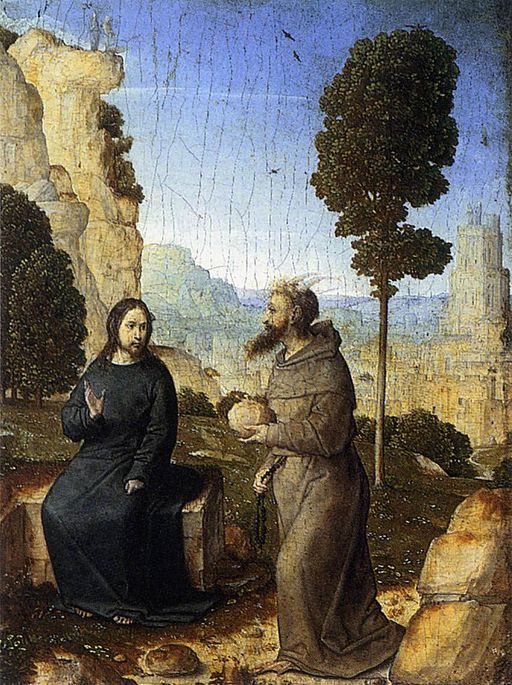
_-_WGA2761.jpg?updated=1632548423)
 Jesus rebukes them
Jesus rebukes them